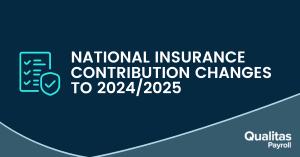As we progress into the next tax year, it is essential for businesses and self-employed individuals to be aware of the changes to National Insurance contributions. The changes, which took effect from 6th April 2024, will impact all employees liable to pay National Insurance contributions with earnings over £12,570 and all self-employed individuals with profits above £12,570 who are liable to pay Class 4 National Insurance contributions.
The main change involves the reduction of the main rates of primary Class 1 and Class 4 NI contributions. For employees, the main rate of employee Class 1 NI contributions will decrease by 2 percentage points from 10% to 8% from last week. Similarly, for the self-employed, the main rate of Class 4 NI contributions will also reduce by 2 percentage points from 9% to 6% from the same date.
The policy objective behind these changes is to reduce the main rates of National Insurance contributions paid by employees between the Class 1 primary threshold and upper earnings limit, and to reduce the main rates of Class 4 NI contributions paid by the self-employed between the lower profits limit and upper profits limit.

These changes were announced at the Spring Budget 2024 and build on previous adjustments. It was previously announced at the Autumn Statement 2023 that the main rate of employee Class 1 NI contributions would reduce by 2 percentage points from 12% to 10% from 6th January 2024, and the main rate of Class 4 National Insurance contributions would reduce by one percentage point, from 9% to 8% from 6th April 2024.
The reduction in the main rates of employee Class 1 and self-employed Class 4 NI contributions came into effect as of 6th April 2024, amending sections 8(2)(a) and 15(3ZA)(a) of the Social Security Contributions and Benefits Act 1992, as well as regulations 8, 21, 100, and 131 of the Social Security (Contributions) Regulations 2001.
In conclusion, the changes to National Insurance contributions for the tax year 2024/2025 represent an important development for businesses and self-employed individuals. It is crucial for all affected parties to familiarise themselves with these changes and consider their potential financial and economic implications. For further details and comprehensive information on these changes, check out the resources available on our website.
